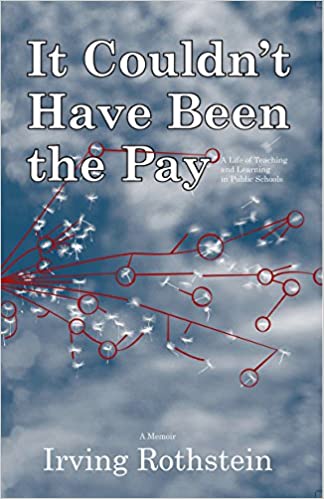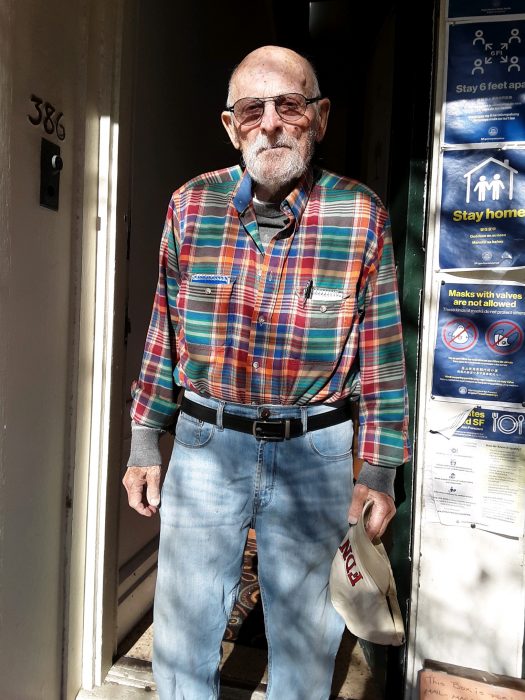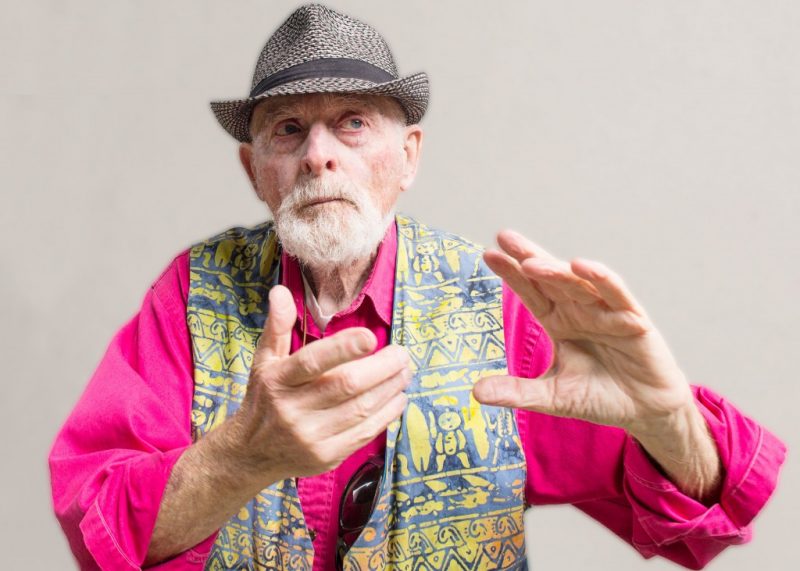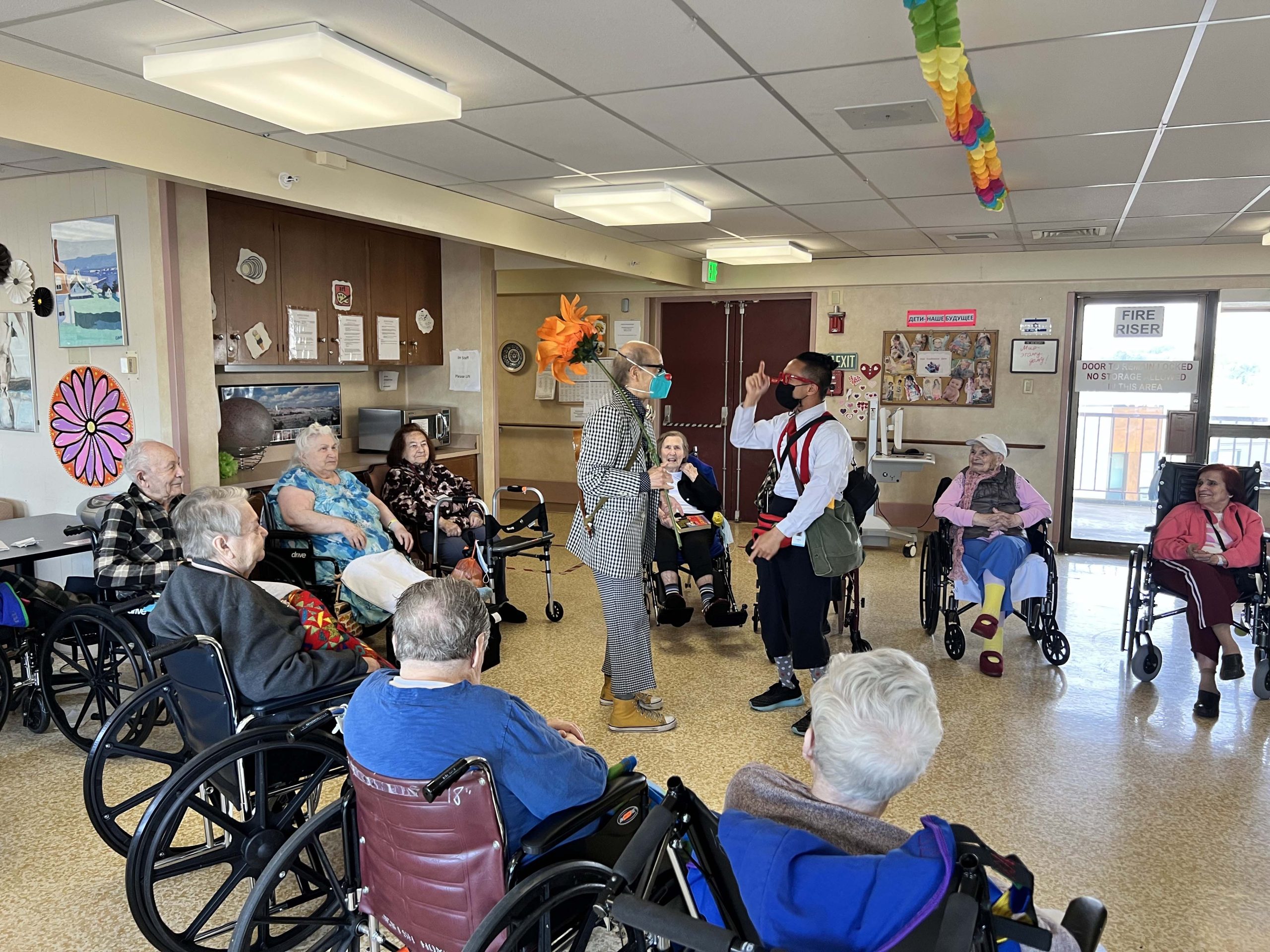‘Street-wise, fast mouth’ made this teacher perfect for preparing under-achieving kids for college
The year was 1963 in Sacramento, Calif. Irving Rothstein was pushing, shredding and pushing more paper in a job he didn’t find very interesting. But, as he recalls, “sometimes out of boredom comes birth.” He followed an ad and nailed a tutoring position. That was the incubator from which he realized his life’s work — teaching.

Since then, there have been many variations — in settings, subjects and students — but his theme remains the same: the joy of teaching and learning. He lives by the Latin proverb: By learning you will teach; by teaching you will learn. His 2015 book, “It Couldn’t Have Been the Pay,” encapsulates his life in public schools.
Within two years of getting the tutoring position, Rothstein had relocated to San Francisco. With the help of a good friend and mentor at San Francisco State, he was soon teaching at Upward Bound, a federally funded program that prepares under-achieving youth for college.
As remarked by one his book reviewers, “Rothstein was perfect was for this spot; he was the street-wise fast mouth who could break through.” Said Rothstein: “The kids voted me the best teacher there during these years.”
He also worked restaurant and sales jobs and got his teaching credential, having already earned his undergraduate degree, in Economics and History at the University of New Hampshire. He eventually was hired to teach in the San Francisco United School District.
In his 39-year tenure, he taught Civics, English, History, Shakespeare and Science Fiction at several high schools: Woodrow Wilson, Opportunity, Balboa and Lowell, from which he retired in 2002.
While Rothstein calls teaching nothing but rewarding, he admits it could sometimes seem an impossible task. “Here and there, there is a success, a kid or two responds to the attention. But just as many kids turn away in rebellion against the force-feeding of reading and writing.”

He was determined to figure out a way to get kids enthused about reading and learning. Inspired by the work of Dr. Lyman Steil, an educator who believes most people learn by listening, Rothstein began to focus on storytelling as a teaching method.
Storytelling gets kids interested
“I grew up with a bunch of people who told stories and rather than trying to correct or discipline me, they would tell me stories with messages that I could learn from,” Rothstein said. “So, I used this idea.”
A random assignment would be to write a true or fictional story illustrating an aphorism or a proverb he put up on the board. “Throughout the semester, I would arbitrarily call on students to share their stories with the class, and then collect them to read.”
In another exercise, he had them interview parents, grandparents and relatives to learn more about their own family histories, traditions or personal stories. “Afterward they would write and share their familial folklore with the class,” Rothstein said. “Oftentimes they got to know each better, dispelling the disparities.”
He took a few sabbaticals along the way to learn more, grow more. On one, he went back to Massachusetts, not far from his hometown of Chelsea. There, he started an alternative school — a childcare center – with a good friend. He taught arts and crafts, dispensing his life lessons along the way.
In 1991, during one of the ongoing uprisings against the Burmese government, he began teaching members of a rebel group in Manerplaw. He was invited by a friend who had started a school there.For six months, Rothstein set-up and taught a storytelling workshop to a select 60-member group comprising the National Democratic Front.
As he writes in his book, there he was, a San Francisco teacher of Belarussian Jewish heritage who grew up in urban Massachusetts among Jews, Italians, Armenians and Irish, sitting on the bank of the Moi River, drinking tea with two Buddhist monks who were telling their stories through a Muslim interpreter. “It’s not what I normally do.”
Reading from his book
Rothstein also built a repertoire that extended way beyond the classroom. He performed at the Sacramento Poetry Center and other venues throughout the Bay Area, where he read from his book. His other writings appear in Tai Chi Magazine and the anthology “Why I Teach.”
Just as the title of his book title implies, money wasn’t his muse. His reward was in the relationships that developed as much as teaching and breaking down barriers to learning.
The first student he ever had comes to his house about once a month just to say hi. Another has brought his children over to learn Tai Chi exercises.
“Two of my former students who had graduated six years earlier met me at my classroom and asked me to perform their marriage ceremony,” he said. “My wife and I were treated as if we were a part of their family.
“Over the years, I run into my students and get welcomed into their circle, treated as a friend.”
Rothstein was born in 1934, the oldest with three siblings. The family did not have a lot of money – his father was an upholsterer; his mother sewed pillows in a factory. At the age of six, his father left. Even at 86, he remembers well the trauma of being beaten by an enraged father – and still acknowledges his mother, grandfather and others who intervened.
Hardscrabble youth
It was a hard scramble in which the family whittled out a living. Throughout his childhood and adolescence, Rothstein worked – in a rag shop, a cleaners’ and a fruit and vegetable market. He also bartended and collected bets from gamblers and delivered their payoffs. “In the first grade, I started friendships with a wide array of people. One of my friends, now dead, was a bookie and I ran numbers for the Mafia Don in Chelsea.”
Later, he was drafted into the Army with a tour of duty in New Jersey, Arizona and New Mexico. Afterward, he even spent a summer in Israel, working on a kibbutz and another summer traveling throughout Europe.
The practice of T’ai Chi Ch’uan has been an anchor in his life since the age of 25. He was introduced to it in 1959 by a Korean roommate, he said. “It helped me learn patience, conquer pain, channel anger and return to a productive life. I don’t claim to know T’ai Chi Ch’uan but I am in the continual process of learning. The practice itself has become a way of life, a Tao.”

While on sabbatical in Chelsea, his hometown, word got around about the guy from San Francisco and the strange Chinese stuff he practices on his front porch. A cop is called in who happens to know Rothstein from childhood. Within weeks, Rothstein is teaching a T’ai Chi Ch’uan class to the cops at City Hall, and then a second class to the bookies and bartenders at the local tavern.
Rothstein calls it “synchronicity,” something he says has echoed throughout his life and reminds him of how we are all connected. He meets people, befriends them and later somehow, somewhere they (or someone they know) shows up and plays a huge role in his travels, growth and understanding.
He’s not traveling anymore nor teaching T’ai Chi Ch’uan – in pre-pandemic times, he taught it at Lowell High School, at the Temple Beth El on Fillmore Street and led a group of neighbors in the practice near his Richmond home.
“Nowadays, I stay close to home with my wife, Rosemary, who is a wonderful editor of my writing. I write, I read and do Qi-Gong.”





